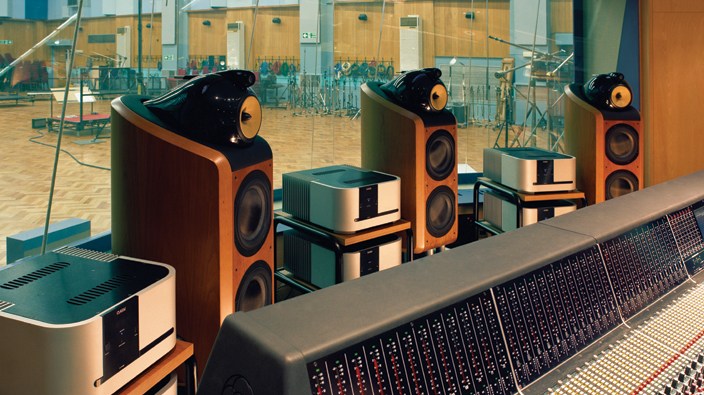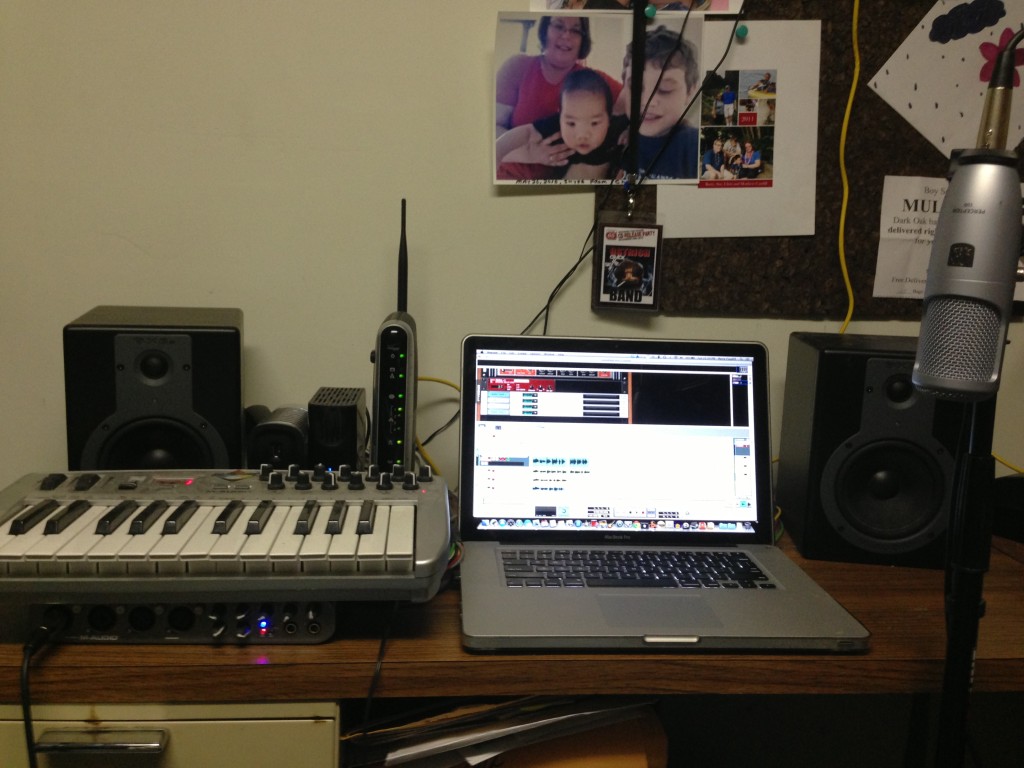
I’ve spent a lot of time over the years both recording myself at home with various rigs and also being recorded in various studios for a string of demos, albums, jingles, and other things. It’s something I have always enjoyed and something I have sought out for myself as well. I’ve recorded on cassette four and eight tracks, on reel to reel tapes with sound on sound, in all-in-one digital 8-track recorder, in various computers, directly onto my phone or tablet, and on super high-end professional gear and there’s something new to be learned every time. Here are some reasons why you might want to get more recording time in especially on your own at home.
It’s enlightening
One cold hard fact about playing a saxophone is you rarely hear the sound the way everyone else hears it. You’re on the wrong side of the bell and because your top teeth are usually on the mouthpiece you end up hearing more through bone conduction than through the air. That’s why four saxophone players in a room will all gravitate to their own wall to hear the bounce-back. Even hearing wall bounce-back isn’t the same as being able to critically listen to a recording because while you are playing your mind is split.
Having a recording allows you to listen to yourself either in the context of a backing track or as a raw audio file. You can immediately pick out things like tone, intonation, note choice, and technique. You can find out once and for all whether one setup sounds better than a another or whether that fancy ligature really opens up your sound. You can put a lot of things into a perspective you can actually review objectively rather than subjectively.
It will make you better player
Many players spend too much time and money trying to chase equipment to capture a particular sound, whether it’s to try to sound like their idol or sound appropriate for a particular style of music. This approach is often expensive and ignores one of the biggest strengths of the saxophone in that it is an incredibly versatile instrument. I believe that recording yourself and listening critically will actually get you closer to your target than an equipment change will. As I mentioned in a previous post, the most important part of your setup is your concept and the way to get in touch with your concept is through critical listening. So recording yourself might even save you some money – you’re welcome. 🙂
Of course, recording yourself and listening critically will also expose everything you are doing – good and especially bad. As musicians, we are often our own worst critics and recordings are brutal when used in this context. If you keep a healthy attitude then you can use this as a call to action rather than a reason to get down on yourself. Hearing your intonation problems or missed chord changes is tough but keeping old recordings will let you truly hear the progress you are making. The best way to fix an issue is to start by knowing the true extent of it.
It sparks creativity
One of the beauties of digital cameras is that there is no film and memory is cheap. Photographers can take as many pictures as they want and experiment to their heart’s content. They can delete the ones they don’t like and start fresh in seconds. With the advent of accessible digital recording, the same freedom is available to any musician. If you get set up for recording you can just play and try things over and over. Keep the stuff you like, delete the stuff you don’t. You can experiment with harmonies, mess around with crazy outside note choices or just turn the lights off and wail. No one has to know but you…unless you find something cool. Some of the most creative musical events have happened when musicians have the ability to experiment without time or money constraints and you can be one of those people now.
It’s fun
I guess I can’t speak for everyone but I have an absolute blast when I’m recording whether it’s in a big studio or in my basement. I love experimenting and I love the challenge of knowing that I will have to listen to the playback and everything it exposes. It is great fun to mess with EQ and effects especially since you can just turn them right back off if they’re terrible. I enjoy trying out a different microphones or experimenting with placement. I love learning new things and recording techniques are just fascinating to read about and experiment with. Your results may vary but I think many people would find the same enjoyment I do and you might be one of them.
It’s never been easier
If you have a smart phone in your pocket it’s likely you have a basic digital recorder available to you already. Usually you don’t even need a special app, you just need to use the voice memo function. If you download an app it’s possible you can get even more features and turn that smart phone into a full multitrack recorder. There are custom microphones that plug right in or there are custom audio interfaces available as well. You can buy handheld dedicated stereo digital recorders from companies like Tascam, Fostex, or Zoom. These units have better microphones built in than smart phones and tablets and better and easier control over input levels. There are great all-in-one digital multitrack recorders on the market from companies like Roland (and some of the previously mentioned companies like Fostex and Tascam) and as other platforms become more popular you can often find them used fairly inexpensively. These all-in-one units are good if you like to have a dedicated machine and also if you like to have more tactile control as they usually have real faders for the mixer.
One of the most popular options these days is possibly the thing you are using to read this post. Personal computers are incredibly powerful and relatively inexpensive. If you already have one then it’s a short hop to being able to use one for recording yourself. Many have built in microphones but there are also very excellent USB microphones that give you quality and a low barrier to entry without breaking the bank. Finally there is a whole range of software available with some excellent free or very cheap alternatives. In the next couple weeks I will post some tips on getting started on PC or Mac and I will continue with tips for getting better sounding recordings as the year goes on.

If you’re already recording yourself, keep it up and keep pushing the boundaries. If you haven’t taken the plunge yet, now is the time. Have fun, improve your playing, and get creative.